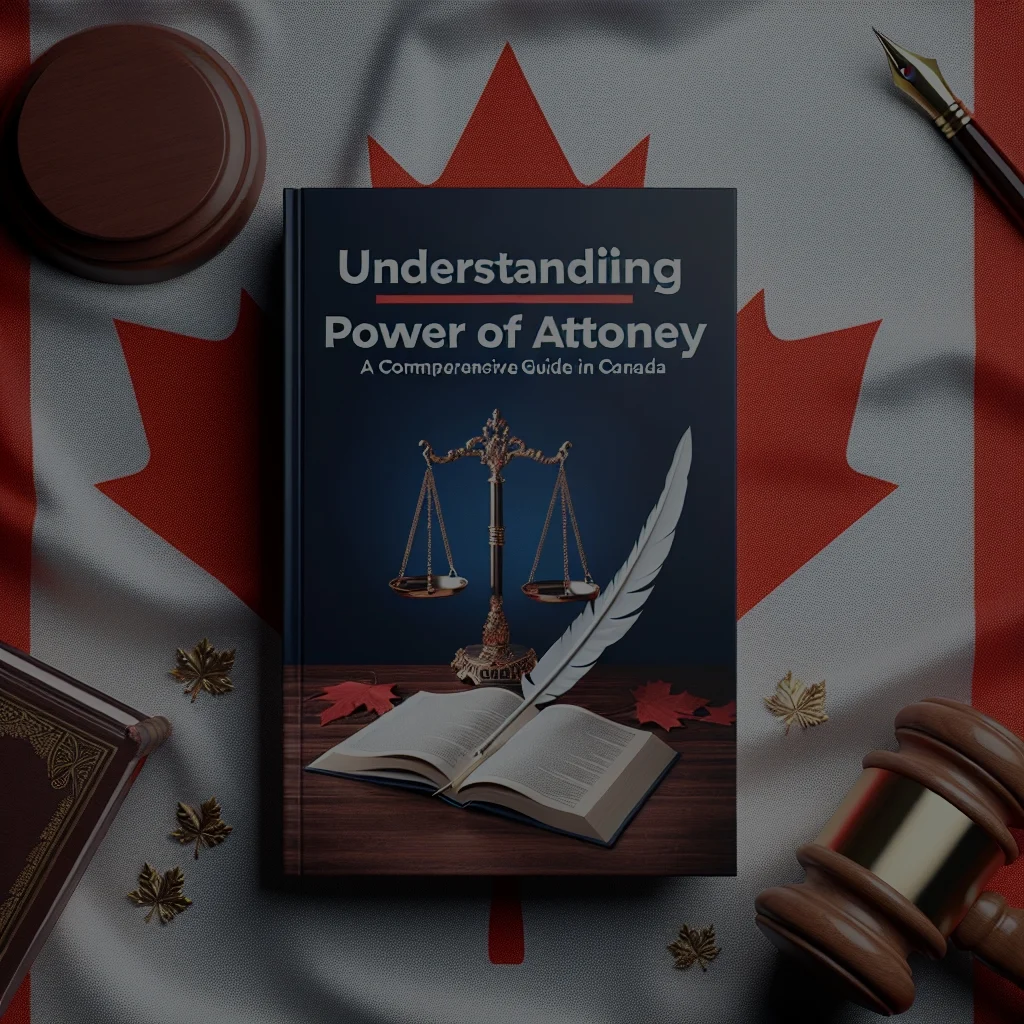Power of Attorney (POA) serves as a crucial legal mechanism that empowers individuals to make decisions on behalf of others, particularly in matters concerning finance, health, and personal affairs. In Canada, understanding the nuances of POA is essential for protecting one’s rights and interests, especially as people age or face health challenges. As such, this comprehensive guide aims to illuminate the various aspects of Power of Attorney in Canada, providing clarity on its types, processes, and legal implications.
What is Power of Attorney and Why It Matters in Canada?
Power of Attorney is a legal document that allows one person, known as the "grantor," to appoint another individual, referred to as the "attorney," to act on their behalf. This arrangement can cover various domains, including financial decisions, healthcare choices, or both, depending on the type of POA established. In Canada, the legislation surrounding Power of Attorney varies by province, but its fundamental purpose remains consistent: to facilitate the management of an individual’s affairs when they are unable to do so themselves.
The importance of Power of Attorney in Canada cannot be overstated, especially in a society that values autonomy and personal choice. As individuals age or face unexpected health issues, having a POA in place ensures that their preferences are respected, and decisions are made based on their best interests. Without a designated attorney, family members may face legal hurdles or prolonged disputes over decision-making authority, potentially leading to outcomes that do not align with the grantor’s wishes.
Additionally, Power of Attorney serves as a preventive measure against potential abuses of power or neglect. By formally designating a trusted individual to act on their behalf, individuals can mitigate the risks associated with incapacity or diminished capacity due to illness. This safeguard is essential in ensuring that one’s financial and healthcare matters are handled responsibly and ethically.
Key Types of Power of Attorney Explained for Canadians
In Canada, there are primarily two types of Power of Attorney: the Continuing Power of Attorney for Property and the Power of Attorney for Personal Care. The Continuing Power of Attorney for Property grants the attorney the authority to make financial and legal decisions on behalf of the grantor, even if they become incapacitated. This type of POA is often employed for long-term planning and is crucial for managing assets, investments, and day-to-day financial transactions.
On the other hand, the Power of Attorney for Personal Care focuses specifically on health and personal welfare decisions. This may include choices about medical treatments, living arrangements, and end-of-life care. It is especially relevant for individuals who wish to ensure that their healthcare preferences are honored, even when they can no longer communicate those wishes themselves. This type of POA can be particularly beneficial for older adults or those with chronic health conditions.
Furthermore, it is essential to understand that Power of Attorney can be either specific or general. A specific POA is limited to a particular task or timeframe, while a general POA allows the attorney to make a broad range of decisions. Canadians must carefully consider their needs and intentions when selecting the type of Power of Attorney that best suits their circumstances.
The Process of Assigning a Power of Attorney in Canada
Assigning a Power of Attorney in Canada involves several key steps to ensure that the process is legally binding and accurately reflects the grantor’s wishes. First, individuals should choose a trustworthy and capable attorney who understands their values and will act in their best interest. This choice is critical, as the attorney will wield significant authority over the grantor’s affairs.
Once an attorney is selected, the next step is to draft the Power of Attorney document. While templates are widely available, it is advisable to consult with a legal professional to ensure the document complies with provincial laws and adequately represents the grantor’s intentions. The document should clearly outline the powers granted to the attorney, any limitations, and the duration of the authority. Depending on the province, witnesses may be required to sign the document to validate it.
After the document is prepared and signed, it should be stored in a safe location, and copies should be provided to the appointed attorney, relevant family members, and healthcare providers if applicable. Additionally, the grantor may wish to inform their attorney about specific preferences or guidelines to follow in decision-making. Regular reviews of the POA document are also recommended, especially during significant life changes.
Legal Implications and Responsibilities of Power of Attorney
Appointing a Power of Attorney comes with significant legal implications and responsibilities for both the grantor and the attorney. The attorney is legally obligated to act in the best interest of the grantor and must adhere to the terms outlined in the POA document. This fiduciary duty requires the attorney to be transparent in their actions, maintain accurate records, and avoid any conflicts of interest. Failure to uphold these responsibilities can result in legal consequences, including potential civil liability.
It is also essential for the grantor to understand that they retain the right to revoke or amend the Power of Attorney at any time, as long as they are mentally competent. This flexibility allows individuals to adapt their decisions based on changing circumstances or relationships. However, it is crucial to formally communicate any changes to the attorney and relevant parties to avoid confusion or disputes.
Moreover, the legal framework governing Power of Attorney in Canada emphasizes the importance of ethical conduct. Attorneys are prohibited from using their authority for personal gain or engaging in any form of exploitation. Should any misconduct arise, family members or concerned parties have the right to seek intervention through the courts, ensuring that the grantor’s interests are protected and upheld.
In conclusion, Power of Attorney serves as a vital legal tool for Canadians, ensuring that individuals can maintain control over their affairs even in times of incapacity. By understanding the different types of POA, the process of assigning one, and the accompanying legal responsibilities, individuals can make informed choices that safeguard their personal and financial well-being. As society continues to navigate an aging population and evolving health landscapes, having a comprehensive understanding of Power of Attorney will be increasingly important for all Canadians.
Navigating the Appeal Process: A Guide for Canadian CourtsUnderstanding Impaired Driving Penalties Across CanadaUnderstanding Your Rights When Arrested in CanadaRelevant LinkRelevant LinkRelevant LinkNavigating the Appeal Process: A Guide for Canadian CourtsUnderstanding Impaired Driving Penalties Across CanadaUnderstanding Your Rights When Arrested in CanadaRelevant LinkRelevant LinkRelevant Link


